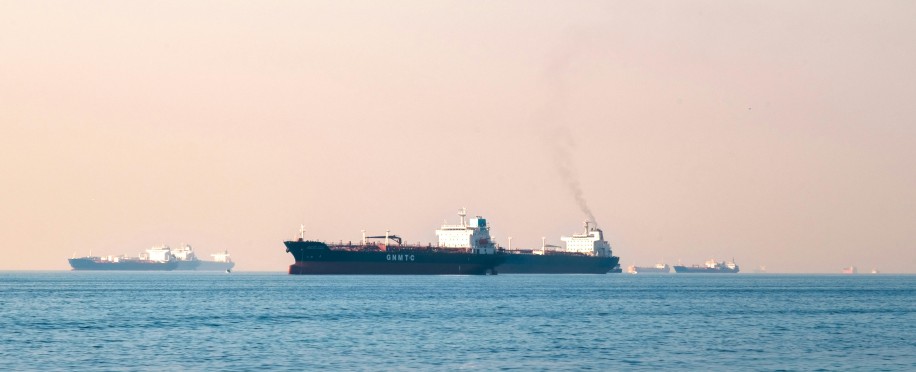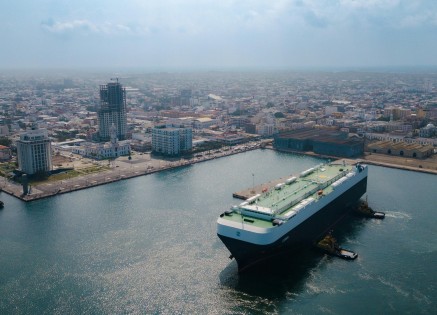Copyright © 2026 lmitac.com All Rights Reserved. Contact - Terms and Conditions - Privacy Policy - Quality Policy - Become an instructor - Vacancies - Sitemap
London Maritime Academy is a trade name for London Premier Groupversion: 2.9.0
London Maritime Academy is a trade name for London Premier Group

Posted on : 7/13/2025, 11:57:40 PM
Last Update : 7/13/2025, 11:57:40 PM
The Gulf region, in light of its strategic location as a global destination for both people and ships, holds significant global economic impotence. Shipping delays or failure to deliver that may happen in this center of global shipping routes, will disrupt supply chains and timely delivery of packages and shipments, and severely affect customers and incur increased costs to businesses.
In this article, we examine the major components of ship delays, how they happen, and what options are there to reduce them.
The shipping business is influenced by a multitude of key players, each can be a part of the reasons why your package might arrive at a later time than expected. Let's learn about each of these players:
One of the primary causes of shipping delays in the Gulf region is port congestion. When you combine large volumes of cargo with limited dock space, what do you get? Bottlenecks through which you can expect loading and unloading vessels to be delayed. Such situations often get exacerbated throughout peak seasons or unforeseen events such as natural disasters or geopolitical tensions. Stakeholders must be alert and notice these patterns to adapt their operations accordingly.
Additionally, shipping delays may be a result of regulatory challenges. Different Gulf countries apply strict customs procedures for ships, such varying regulations can make cargo processing times inconsistent, as it's hard to keep up with updated customs day by day.
Last but not least, technological and digital advancements can represent both challenges and opportunities when talking about shipping delays. Innovations like automated tracking systems can enhance visibility along the supply chain, whereas inadequate infrastructure to support these technologies can lead to further delays
When a shipping delay occurs, what do you think happens? When your package doesn't arrive in the mail after days and days of waiting, who do you think should be held responsible? Several types of shipping delays impact the Gulf region:
Shipping delays are often the result of a complex interplay of factors that can significantly impact the Gulf economy. Sometimes, even a world-class company might lose track of your shipment. Here are the most common causes why you might not receive your missing shipment:

In the bustling Gulf economy, shipping delays can have a pronounced impact that reverberates through various sectors. Much like a ripple effect, such delays influence not just the shipping companies involved but also plenty of stakeholders.
At the top of the list lies the increase in operational costs. Delays mean higher fuel consumption to accommodate for extended travel times, as well as increased labour costs for dock workers and logistics personnel.
Furthermore, companies may incur additional fees for the storage of goods that cannot be moved to their final destinations.
Looking beyond immediate financial implications, shipping delays may disrupt supply chains, which in turn may lead to shortages and unsatisfied consumer demands. Such errors become especially problematic in the Gulf region, where industries are often reliant on just-in-time delivery systems.
Shipping delays are a strong liability that weighs down on all parties involved in the shipping process. Many Shipping Management Courses in London focus on these consequences, exactly for that reason, but what kind of consequences can you expect to have if you're a bit hasty with your planning? Here are a few of the effects:
Immediate financial consequences include additional port fees, storage charges, and increased operational costs. At first glance, the burden will typically fall on companies and retailers. Nevertheless, they'll eventually reflect on prices that affect customers.
Indirect consequences like inventory shortages, reduced customer satisfaction, reputational damage, and even inflationary pressures affect purchasing power and overall economic stability of companies.
Persistent shipping delays risk undermining long-term economic stability through a range of actions, including inflating product prices, hindering economic diversification efforts, and necessitating ongoing infrastructure and technological investments to maintain competitive logistics frameworks.
The extensive economic impact of shipping delays goes to show the urgent need for proactive strategies, robust infrastructure upgrades, simplified regulatory processes, and greater collaboration among stakeholders. Howeverm with the right amount of knowledge and coordination, no shipping company would suffer from these delays again.